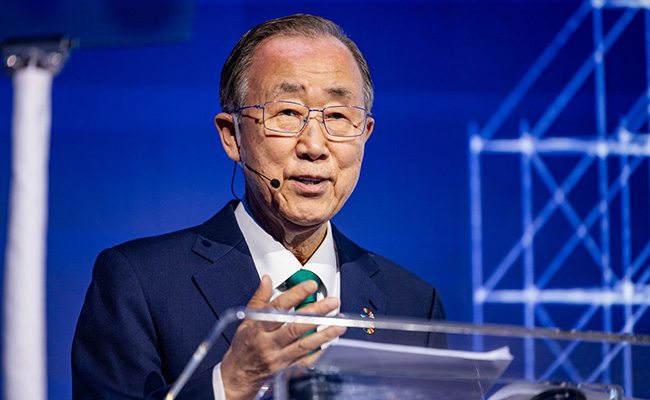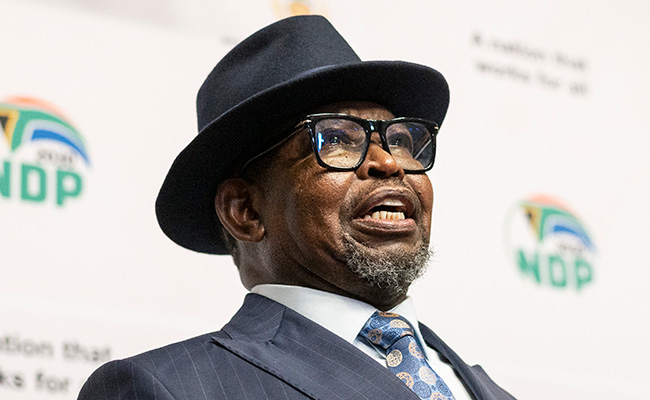From goings-on in politics to info drops in the economic world, we’ve got you covered on what to expect this week.
Politics
Mkhwanazi ad-hoc committee shifts into gear
The newly established ad-hoc committee of parliament has elected ANC MP Molapi Lekganyane as its chair to lead the investigation into the serious allegations made by KwaZulu-Natal police commissioner Lt-Gen Nhlanhla Mkhwanazi. The committee agreed to circulate draft terms of reference (its objectives, scope, powers and deadline) by the close of business last Friday and to move quickly to adopt a programme. Members also floated the idea of operating from Gauteng during August to speed up hearings while parliament is in recess.
The week ahead will likely bring the draft terms of reference, a first witness list, and a decision on venue. A flashpoint already emerged when parliament’s legal services cautioned that Mkhwanazi’s July 6 statements are “not evidence in a technical sense,” signalling possible fights over evidence thresholds. Opposition parties have flagged concerns about ANC stewardship and scope. The committee works to a 90-day, National Assembly-set mandate; the clock starts on the house resolution.
Tariff fallout and top-level US outreach
South Africa enters the week with 30% US tariffs now in force, but with continued diplomatic tracks at the top: Presidents Cyril Ramaphosa and Donald Trump have spoken by phone, agreeing to keep talks alive, while international relations and co-operation minister Ronald Lamola has met US chargé d’affaires David Greene. The presidency says negotiating teams will now pursue more detailed discussions; the government insists it won’t rewrite domestic laws at Washington’s behest, as minister in the presidency Khumbudzo Ntshavheni reiterated.
Behind the scenes, officials are modelling jobs at risk – around 30,000 across sectors, by the department of trade, industry and competition’s estimate, while the Reserve Bank warns of 100,000-plus in the automotive and agriculture sectors if relief isn’t secured. This week, negotiators will push for sector carve-outs and phased rates. Industry will want to see a timetable and support for exporters as well as more clarity in South Africa’s foreign policy.
Sakeliga sues Ramaphosa, ministers over municipal collapse
Lobby group Sakeliga has given Ramaphosa and three ministers until Friday to intervene in collapsed North-West municipality Ditsobotla or face personal cost orders in court. Sakeliga is trying to force the national government to intervene in Ditsobotla after a provincial intervention failed to improve service delivery.
Sakeliga’s legal ultimatum may prove to be an important chapter in the ongoing failures of local government and intra-governmental relations.
Economics
Quarterly Labour Force Survey
On Tuesday, the Quarterly Labour Force Survey drops. A slight increase in employment is expected on the back of a stable power supply, easing logistical constraints and improving consumer spending. The labour force release remains large as the economy struggles to absorb new entrants, and the unemployment rate is likely to hold near ~33% in the second quarter. Beyond the headline, the crucial numbers will be youth unemployment and underemployment. Any improvement would align with firmer retail reads; a softer outturn would underline how slowly job creation is arriving despite better operating conditions.
Manufacturing and mining (June)
Also on Tuesday, South Africa’s headline real-economy prints are released: manufacturing and mining. Manufacturing production is expected to rise 0.8% year on year in June, supported by a low base after a sharp 4.7% contraction in the same month last year. Mining output is likely to edge up about 1.4% year on year on similar base effects.
Operating conditions remain challenging, but logistics improvements and minimal load-shedding have provided some relief. Tuesday’s data will provide some answers on whether supply chains are clearing. Base effects are doing a lot of the lifting, but a positive duo would steady growth expectations moving into the third quarter, tempered by uncertainty around US tariffs.
Noteworthy is the current friction between government and business over mining strategy. Mineral and petroleum resources minister Gwede Mantashe rebuked Sibanye-Stillwater’s Neal Froneman for a US “critical minerals” pitch made without ministry input. Mantashe said the business leaders’ proposal included wording along the lines of “make minerals great again”, which “is not our language”, and that he wants “a cross-cutting strategy for everyone” rather than a strategy focused on the US.
Retail sales (June)
On Wednesday, retail sales are due and growth is expected to be about 3.8% year on year, easing from 4.2% in May. Sales continue to benefit from a more subdued inflation backdrop, lower interest rates and reduced debt-service costs, which together have lifted disposable incomes and supported spending.
A firmer number would reinforce the view that earlier rate cuts are feeding through to the high street. As always, tariff headlines could dent confidence and push up prices of imported goods into the third quarter, while stubbornly high unemployment still caps the demand ceiling.

This article is published courtesy of The South Africa Brief, a political newsletter published on Substack which is a collaboration between Paul Berkowitz and Jonathan Moakes. It provides analysis and insight into the new, uncertain era of South African politics heralded by the 2024 general election. Including a specific focus on municipal politics, it will provide full analysis in the run-up to next year’s municipal polls.
Sign up to Currency’s weekly newsletters to receive your own bulletin of weekday news and weekend treats. Register here.









